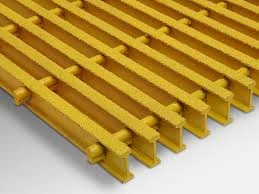loading...
- No. 9, Xingyuan South Street, Dongwaihuan Road, Zaoqiang County, Hengshui, Hebei, China
- admin@zjcomposites.com
- +86 15097380338
- Welcome to visit our website!
fiberglass water container
The Versatility and Advantages of Fiberglass Water Containers
In recent years, there has been a growing trend towards using fiberglass water containers across various industries and applications. Fiberglass, a composite material made of glass fibers and resin, has gained popularity due to its unique properties that make it suitable for storing water efficiently and safely. Below, we will explore the advantages of fiberglass water containers, their applications, and some considerations for their use.
Advantages of Fiberglass Water Containers
One of the primary benefits of fiberglass water containers is their durability. Unlike traditional materials such as metal or plastic, fiberglass is resistant to corrosion and can withstand extreme weather conditions. It does not rust, which makes it ideal for long-term outdoor use. This durability translates to a longer lifespan for fiberglass containers, reducing the need for frequent replacements and, consequently, minimizing costs in the long run.
Another significant advantage of fiberglass water containers is their weight. Fiberglass is lighter than many other materials, making it easier to transport and install. This lightweight characteristic does not compromise strength; fiberglass containers maintain structural integrity even under significant stress. This property is particularly beneficial in applications where heavy lifting is required, such as in agricultural settings where containers may need to be moved frequently.
Fiberglass water containers are also highly customizable. Manufacturers can produce them in a variety of sizes, shapes, and colors to suit specific needs. For instance, certain industries may require large volume tanks for storing water, while others might need smaller, more portable containers. The flexibility in design allows companies to tailor solutions that fit their operational requirements perfectly.
Furthermore, fiberglass is non-reactive, meaning it does not leach chemicals into the water it holds. This is particularly important for industries such as food and beverage or pharmaceuticals, where water quality is critical. Users can have peace of mind knowing that their water will remain pure and free from contaminants, ensuring safety for consumption and use.
Applications of Fiberglass Water Containers
fiberglass water container

The versatility of fiberglass water containers extends to a wide range of applications. In agriculture, they are commonly used for irrigation purposes, efficiently storing and distributing water to crops. Due to their ability to withstand ultraviolet (UV) radiation, these containers can be placed in direct sunlight without degrading, making them a smart choice for outdoor farming.
In the industrial sector, fiberglass water containers function as cooling towers or water reservoirs. Their durability and resistance to chemicals make them suitable for various liquid storage needs in manufacturing processes. Additionally, they are used in recreational settings such as swimming pools or water parks, where they serve as filtration systems or storage tanks for pool maintenance.
Furthermore, in the realm of emergency preparedness, fiberglass containers play a critical role in water storage during natural disasters or community crises. Their robustness ensures that essential water supplies are safe from external contaminants and can remain stored for prolonged periods without loss of quality.
Considerations for Use
While fiberglass water containers offer numerous advantages, there are certain considerations to keep in mind. Proper installation and maintenance are crucial to maximize their lifespan and performance. Users should ensure that containers are placed on a level surface and maintained according to manufacturer recommendations to avoid structural issues.
Additionally, while fiberglass is durable, it can still be damaged by extreme impacts or prolonged exposure to certain harsh chemicals. Users should be aware of the materials they store and ensure compatibility to maintain the integrity of the container.
In conclusion, fiberglass water containers represent a modern solution for various water storage needs. Their durability, lightweight properties, customizability, and non-reactive nature make them a preferred choice across multiple industries. As demand continues to rise, it is essential for users to consider environmental factors and proper maintenance practices to ensure the longevity and effectiveness of these versatile containers.
-
GRP Structures: The Future of Lightweight, High-Performance EngineeringNewsJun.20,2025
-
FRP Water Tank: High-Performance Storage for Corrosive and Clean Water SystemsNewsJun.20,2025
-
FRP Square Tube: The New Industry Standard for Chemical and Structural ApplicationsNewsJun.20,2025
-
FRP Pultruded Profiles: The Ultimate Choice for Lightweight Structural StrengthNewsJun.20,2025
-
FRP Handrails: The Safer, Smarter, and Stronger Choice for Modern InfrastructureNewsJun.20,2025
-
FRP Grating: The Smart Solution for Durable, Lightweight Industrial FlooringNewsJun.20,2025
-
Why Choose a Galvanized Water Tank for Your Storage NeedsNewsMay.21,2025
